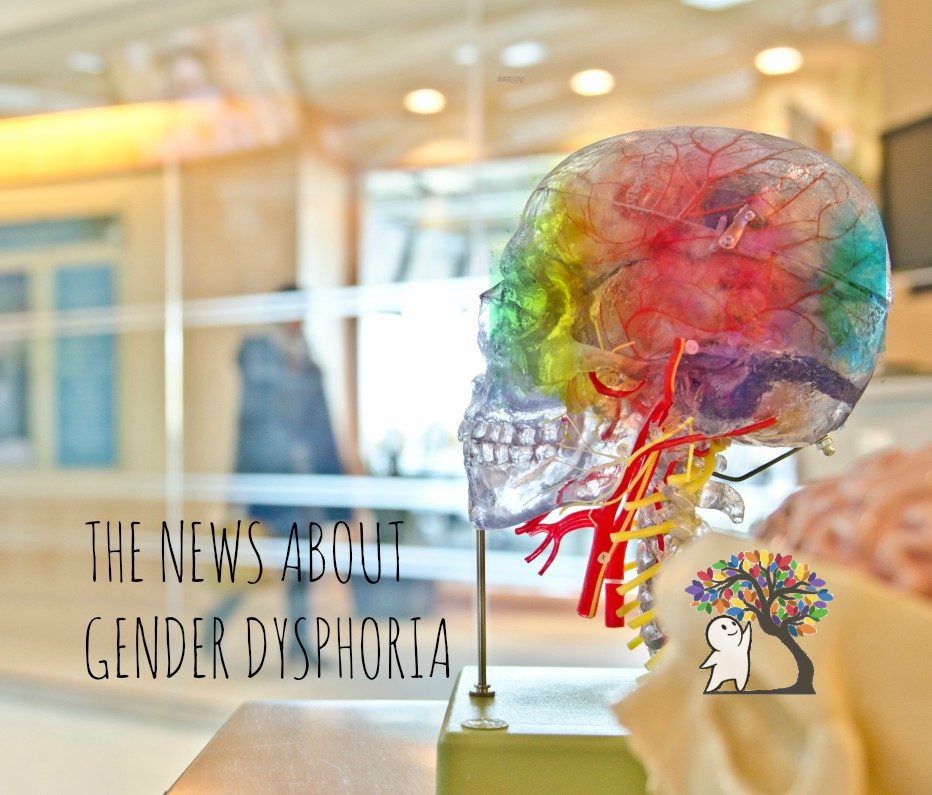Brain Scans Show New Information About Being Trans

Gender dysphoria continues to be an important issue in the trans and gender fluid community today. If you’d like to know more information about gender dysphoria, you can read all about it in THIS article. Want a quick rundown? Gender dysphoria is a condition in which a person feels a conflict with their assigned gender and the one they truly identify with.
Gender dysphoria is an extremely troubling condition that can eat away at a person’s mental health if left untreated. Unfortunately, there are many people who don’t view dysphoria as a legitimate problem. In fact, many people believe that being transgender is a complete matter of choice. Well, now there’s new scientific information on dysphoria that proves otherwise. Surprise: being trans might be a little more “nature” than it is “nurture”.
The Findings
A recent study led by Belgian researcher Julie Bakker of the University of Liege, has taken a look into the brain activity of trans teens that have been diagnosed with gender dysphoria. The major breakthrough? Bakker’s study is among the first to give evidence that transgender people’s brains resemble their gender identities – their embraced gender – and not their biological sex.
Bakker and her staff took a sample of 160 participants and scanned their brain activity using an MRI (magnetic resonance imagining) test. The test group included biological males and females who suffer from gender dysphoria. Cis-gendered men and women – males and females without gender dysphoria – were also tested as a control group.
The brain scans had shown that male participants with dysphoria had brain structure and neurological patterns similar to biological females. The same results were found in females with dysphoria; their neural pathways mirrored those of biological males. These neural pathways are so distinct, they’re even detectable in Bakker’s child participants.
Though the reason behind this finding is not yet known, it has been speculated by researchers that gender dysphoria may be caused by hormonal exposure during pregnancy. Some scientists deduce that dysphoria is caused by prenatal exposure to added hormones due to medication taken by the mother. Others believe that, while in the womb, some babies just have an insensitivity to certain prenatal hormones. These developmental abnormalities may be reasons behind the difference in brain structure.
So What’s Next?
Bakker’s findings have proven to be controversial among many. Some LGBT groups stand against scientific or medical gender reasoning and argue that gender identity should be a personal choice. These findings may also cause concern for more gender fluid individuals, who may prefer not to have science define them so concretely.
The goal of Bakker’s findings, however, is only to give doctors a new, better, and faster way to help dysphoria sufferers. Currently, children who show symptoms of gender dysphoria have limited options for treatment. Therapy is a common tool for youth who suffer from gender dysphoria. Puberty blockers, also known as puberty-delaying hormones, can also be given to give an individual more time to make a decision on whether to transition.
Many medical practitioners are not well-versed in trans health issues and make the mistake of stalling viable treatment. This is usually to make sure that the right treatment is given, but this can often make dysphoria worse – especially for a young person with dysphoria entering the body-changing experience of puberty. Other practitioners may respond with treatment prematurely, which can often contribute to continued mental health issues and even de-transitioning. Gender dysphoria treatment can be very, very tricky.
It is Bakker’s hope that these findings will allow medical practitioners to more accurately confirm gender dysphoria, and give more confident plans for treatment. Bakker states, “We will… be better equipped to support these young people, instead of just sending them to a psychiatrist and hoping that their distress will disappear spontaneously.”
What Do You Think?
What are your thoughts on Bakker’s study? Do you think this new finding will help people with gender dysphoria? Do you disagree with the study? Psych2Go wants to know your opinion! Let us hear you in the comments section down below!
You can reach the author personally at alexanderjnunez@live.ca .
Edited by Viveca Shearin




I have gender dysphoria and I can confirm the part in the article where it was stated that most therapists don’t know how to really deal with trans mental health issues at first. At my last appointment, after 6 months of knowing my therapist, I finally told her about my dysphoria. Her conclusion was neautral. She said to give me time to make up my mind of what I want. I already know what I want, but at the time the words were so hard to get out of my mouth because the moment felt like it wasn’t real. I hope that next time she will ask me how I feel because I really hope that she can help me get on testosterone
I am also a trans person. What i can advice you, is to be more upfront and clear with your therapist. Even the therapists specialized with in gender-teams. Can find it difficult to fully ‘diagnose dysphoria’… So if you know who you are? Tell her! And be bold, dont be afraid to express who you are. The stronger you come across to her, into your feelings of being a man? The more she will hear you. You just sometimes have to, man up and be upfront. You can do it buddy, hang in there ;).